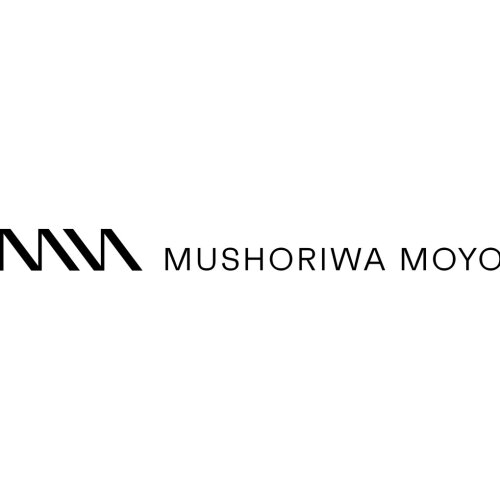Best Insurance Lawyers in Harare
Share your needs with us, get contacted by law firms.
Free. Takes 2 min.
List of the best lawyers in Harare, Zimbabwe
About Insurance Law in Harare, Zimbabwe
Insurance law in Harare, Zimbabwe, is governed by a mixture of statutory law and common law, designed to regulate the insurance industry, protect policyholders, and ensure fair conduct among insurers and insured parties. The insurance market in Zimbabwe consists of several types of insurance products, including life, health, motor, property, and liability insurance, among others. The Insurance and Pensions Commission (IPEC) is the principal regulatory body, ensuring compliance with set standards and fostering the growth of the industry in a sustainable manner.
Why You May Need a Lawyer
There are numerous scenarios where legal expertise may be essential in the field of insurance:
- Claims Disputes: When an insurance claim is unfairly denied or delayed, a lawyer can help navigate the claims process and advocate for your rights.
- Policy Interpretation: Insurance contracts can be complex. Legal advice can help you understand policy terms and coverage to ensure you receive appropriate benefits.
- Litigation: If disputes escalate to legal proceedings, having a lawyer to represent you in court or during arbitration can be invaluable.
- Regulatory Compliance: Businesses in the insurance sector might require legal advice to comply with local insurance laws and regulations.
- Fraud Investigation: Legal assistance may be necessary in cases of suspected insurance fraud, both from the perspective of the insurer and the insured.
Local Laws Overview
The legislative framework for insurance in Harare is primarily set by the Insurance Act, which governs the registration and operation of insurance companies. The IPEC plays a crucial role in overseeing adherence to these regulations. Some key aspects of relevant local laws include:
- Registration and Licensing: Insurers in Zimbabwe must be registered with IPEC and comply with specific financial and operational standards.
- Consumer Protection: There are legal provisions to safeguard consumer rights, ensuring transparency and fair treatment in the marketing and administration of insurance products.
- Details of Policies: Regulations require clarity in policy documentation to prevent misunderstandings about coverage.
- Claims Process: There are specified timelines and procedures that insurers are required to follow when processing claims.
Frequently Asked Questions
What types of insurance are commonly available in Harare?
Common types of insurance include life, health, motor, property, and business insurance.
How do I know if an insurance company is legitimate?
Verify that the company is registered with the Insurance and Pensions Commission (IPEC), which maintains a list of licensed insurers.
What should I do if my insurance claim is denied?
Request a written explanation for the denial and consult a lawyer if you believe the denial is unjust. A lawyer can help negotiate with the insurer or take legal action if necessary.
Can I switch insurance providers easily?
Yes, but it's essential to review the terms of your current policy and the policies with potential new insurers to ensure continuous coverage and avoid penalties.
What are my rights as a policyholder?
As a policyholder, you're entitled to clear information about your policy, timely processing of your claims, and fair treatment without discrimination.
How is insurance fraud handled in Harare?
Insurance fraud is a criminal offense, and cases are typically investigated by the police or internal fraud investigation units, often leading to legal prosecution.
What happens if an insurance company becomes insolvent?
The IPEC may intervene when an insurance company faces financial difficulties to protect policyholders' interests and may involve the liquidation process if necessary.
Do I need different insurance if I'm running a business?
Yes, business owners often require specific types of insurance, such as property, liability, and workers' compensation, depending on their operations.
How can I dispute an insurance premium increase?
You can first discuss the increase with your insurer to understand the reasons. If you believe it's unjustified, consult a lawyer for further action.
What is the role of IPEC in insurance regulation?
IPEC oversees the insurance industry, ensuring compliance with laws and regulations, and works to protect consumer interests and promote industry growth.
Additional Resources
For further guidance, consider reaching out to the following institutions and bodies:
- The Insurance and Pensions Commission (IPEC): The regulatory authority for insurance in Zimbabwe.
- Zimbabwe Insurance Brokers Association (ZIBA): Offers information and resources for navigating insurance issues.
- Legal Resources Foundation: Provides legal information and resources for various legal issues, including insurance.
- Consumer Council of Zimbabwe: Advocates for consumer rights, including those related to insurance.
Next Steps
If you require legal assistance in insurance matters, consider the following steps:
- Consultation: Schedule consultations with legal professionals specializing in insurance law to discuss your situation.
- Documentation: Gather all relevant documents, such as your insurance policy, correspondence with the insurer, and any related legal notices or summonses.
- Representation: Engage with a lawyer or law firm that has experience in handling insurance matters to represent you effectively.
- Follow-Up: Stay in regular contact with your legal representative to keep updated on the status of your case or negotiation.
Lawzana helps you find the best lawyers and law firms in Harare through a curated and pre-screened list of qualified legal professionals. Our platform offers rankings and detailed profiles of attorneys and law firms, allowing you to compare based on practice areas, including Insurance, experience, and client feedback.
Each profile includes a description of the firm's areas of practice, client reviews, team members and partners, year of establishment, spoken languages, office locations, contact information, social media presence, and any published articles or resources. Most firms on our platform speak English and are experienced in both local and international legal matters.
Get a quote from top-rated law firms in Harare, Zimbabwe — quickly, securely, and without unnecessary hassle.
Disclaimer:
The information provided on this page is for general informational purposes only and does not constitute legal advice. While we strive to ensure the accuracy and relevance of the content, legal information may change over time, and interpretations of the law can vary. You should always consult with a qualified legal professional for advice specific to your situation.
We disclaim all liability for actions taken or not taken based on the content of this page. If you believe any information is incorrect or outdated, please contact us, and we will review and update it where appropriate.
Browse insurance law firms by service in Harare, Zimbabwe
Harare, Zimbabwe Attorneys in related practice areas.











